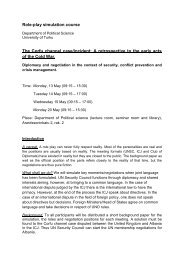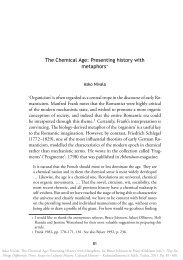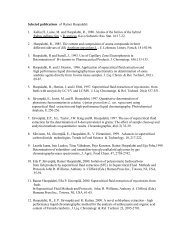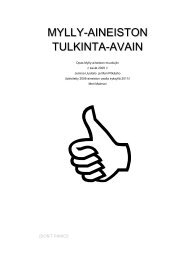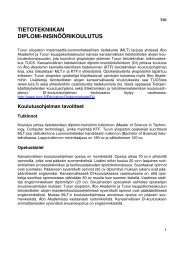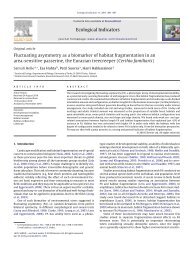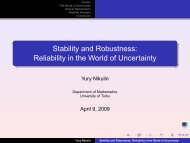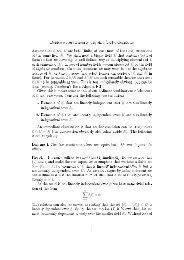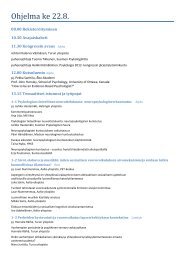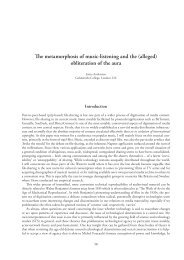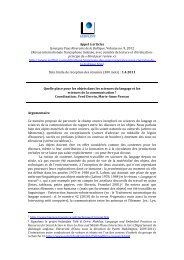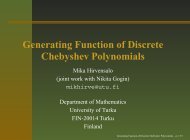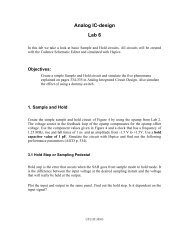The Chemical Age: Presenting history with metaphors∗
The Chemical Age: Presenting history with metaphors∗
The Chemical Age: Presenting history with metaphors∗
You also want an ePaper? Increase the reach of your titles
YUMPU automatically turns print PDFs into web optimized ePapers that Google loves.
<strong>The</strong> <strong>Chemical</strong> <strong>Age</strong>asm for pristine unity. <strong>The</strong> early Romantics not only aimed to ascenddialectically towards a unity behind opposites, but also to unravel thosethings that appear united to common sense, although they actually containa contradiction. 34 Different substances can be united as a compound,but conversely it is possible to break down a solid substance into differentcompounds. According to Schlegel, the scientific innovation canbe compared to this process. It is heuristic experimentation where newdefinitions of a concept are sought by constantly separating and unitingthings: ‘<strong>The</strong> method of idealism is an experimenting that combines.’ 35 Thisexperimenting implies that the definitions of concepts are not fixed andfinal, but dynamic and constantly self-corrective. However, one shouldnot confuse Schlegel’s notion of the impossibility of final truths <strong>with</strong>later deconstruction and its claim that one cannot distinguish true fromuntrue. 36 Although Schlegel criticized the traditional correspondencetheory of truth, he elaborated a coherence theory of truth, according towhich it is impossible to achieve final truth because science must alwayscorrect itself infinitely. 37<strong>Chemical</strong> <strong>history</strong>In the previous section, I discussed how Schlegel conceived the structureof metaphorical language. I will now explore his conceptualization of theera following the French Revolution as a chemical age. Of course he didnot think that revolution as such could be reduced to an electrochemicalphenomenon. Rather, he was searching for a metaphorical connectionbetween two things from different fields of reality. Herder had alreadyused this method before Schlegel. However, Herder preferred organic andnatural development over modern, mechanistic and artificial <strong>history</strong>. 3834 According to Schlegel dialectics consist only of contradiction between thesis andantithesis <strong>with</strong>out atonement in synthesis. KFSA XVIII, p. 8. No. 45.35 Schlegel 1997 (1800-1801), p. 257; KFSA XII, p. 21.36 Cf. Derrida [1972] 2004, p. 166.37 On the Romantic coherence theory of truth see Frank 1998, p. 854; Millán-Zaibert2007, p. 40.38 Herder [1774] 1984, p. 638; Nisbet 1999, pp. 87–88.Asko Nivala: <strong>The</strong> <strong>Chemical</strong> <strong>Age</strong>: <strong>Presenting</strong> History <strong>with</strong> Metaphors. In: Bruce Johnson & Harri Kiiskinen (eds.): <strong>The</strong>y DoThings Differently <strong>The</strong>re. Essays on Cultural History. Cultural History – Kulttuurihistoria 9. k&h, Turku, 2011. Pp. 81–108.91




